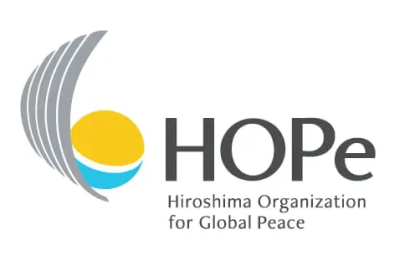Call for Papers
Getting rid of Nuclear Weapons: Philosophical Foundation and Historical Circulation of Ideas in Nuclear Disarmament
International Conference - Paris, May 29 2019 

 Interdisciplinary Center on Nuclear and Strategic Studies - CIENSParis Sciences & Lettres (PSL) – École normale supérieure (ENS-Ulm)In partnership with the Non-Proliferation International History Project (NPIHP, Washington)
Interdisciplinary Center on Nuclear and Strategic Studies - CIENSParis Sciences & Lettres (PSL) – École normale supérieure (ENS-Ulm)In partnership with the Non-Proliferation International History Project (NPIHP, Washington)
State of the art
Since the dawn of the nuclear era, nuclear deterrence has been contested and criticized, both as a legitimate policy on the basis of its immorality, and as a practical policy on the basis of its inefficiency and dangerosity. These questionings opened the path to a great diversity of movements that have been involved in nuclear disarmament, either directly – peace and antinuclear movements, national and international peace organisations, including professional (notably scientific and religious) organisations – or indirectly – direct action groups (more common in anti-nuclear energy groups), environmental, feminist, anticolonial or human/civil rights groups, and political parties. Despite their differences, these entities have all contributed to the edification and circulation of a broad corpus of criticism against nuclear weapons. Recent studies and movements have re-energized the pro-nuclear disarmament agenda in the West and the strong criticism against nuclear deterrence, especially on ethical, moral and philosophicalgrounds (see, for example, changes in religious thoughts, notably the Catholic Church in Roma ). New studies have also opened up new avenues to better understand the transnational circulation of ideas and concepts related to disarmament, the role of inter/trans/national nuclear imaginaries, theconnection between national and transnational histories, and the interactions between grassroots activism and “transnational professional activism” in the creation of nationally based movements, inorder to shed light on the complex dynamics that interact to favour the development of disarmament movements. Recent studies considered in this state of the art include: Matthew Grant, Benjamin Ziemann (ed.), Understanding the Imaginary War: Culture, Thought and Nuclear Conflict, 1945-90, Manchester, Manchester University Press, 2016.Alison Kraft, Holger Nehring, Carola Sachse (ed.), “The Pugwash Conferences and the Global Cold War: Scientists, Transnational Networks, and the Complexity of Nuclear Histories”, Journal of Cold War Studies, Vol. 20, no. 1, Winter 2018.Lawrence S. Wittner, “The Struggle against the bomb”, 3 Volumes, Stanford University Press, 1995- 2003.
Research question
This conference aims at contributing to this emerging understanding and studying of the transnational history of nuclear disarmament movements, and their philosophical foundations. It will seek to address the question of the history of the critics of nuclear weapons and deterrence that these movements have gathered, synthesised, deepened and exploited, and their philosophical and moral underpinnings. Considering the importance of pluri-disciplinary approaches for such a topic, scholars are invited to frame their research question in history, social science, philosophy and ethics or other relevant fields (anthropology, theology…). They are invited to focus on the Western World, but also to present research on a worldwide scale incorporating South America, South-Asia and Asia-Pacific / Oceania, and Africa. Therefore, the organisers would particularly welcome new research aimed at assessing and contextualising:- the circulations, transfers and re-appropriations of ideas, practices and peoples among disarmament movements and more broadly among transnational activist movements (involved in other issues, such as environment, technology, fight against corruption, etc) or with political parties, and their roles in the emergence and reconfiguration of inter/trans/national networks and communities;- the philosophical, moral and ethical foundations of the ideas developed by such movements, their history, their intellectual references, their differences and their development/combination.
Procedure
The organisers would be happy to consider additional proposals which potential contributors believe would fit in the overall intellectual framework of the conference. The deadline for proposals is set for March 1st 2019. Proposals should include a title, a 400 words outline and a one page CV of the author with a list of major publications. Following the acceptance of the proposals (early March), authors will receive editorial guidelines (e.g. format of the papers). In order for the papers to be available to conference participants beforehand, authors will be asked to submit their draft papers by May 15 2019. Proposals should be emailed to ciens@ens.fr Participants will receive reimbursement for their transportation on the basis of economy fare as well as accommodation during their stay in Paris for one night.



